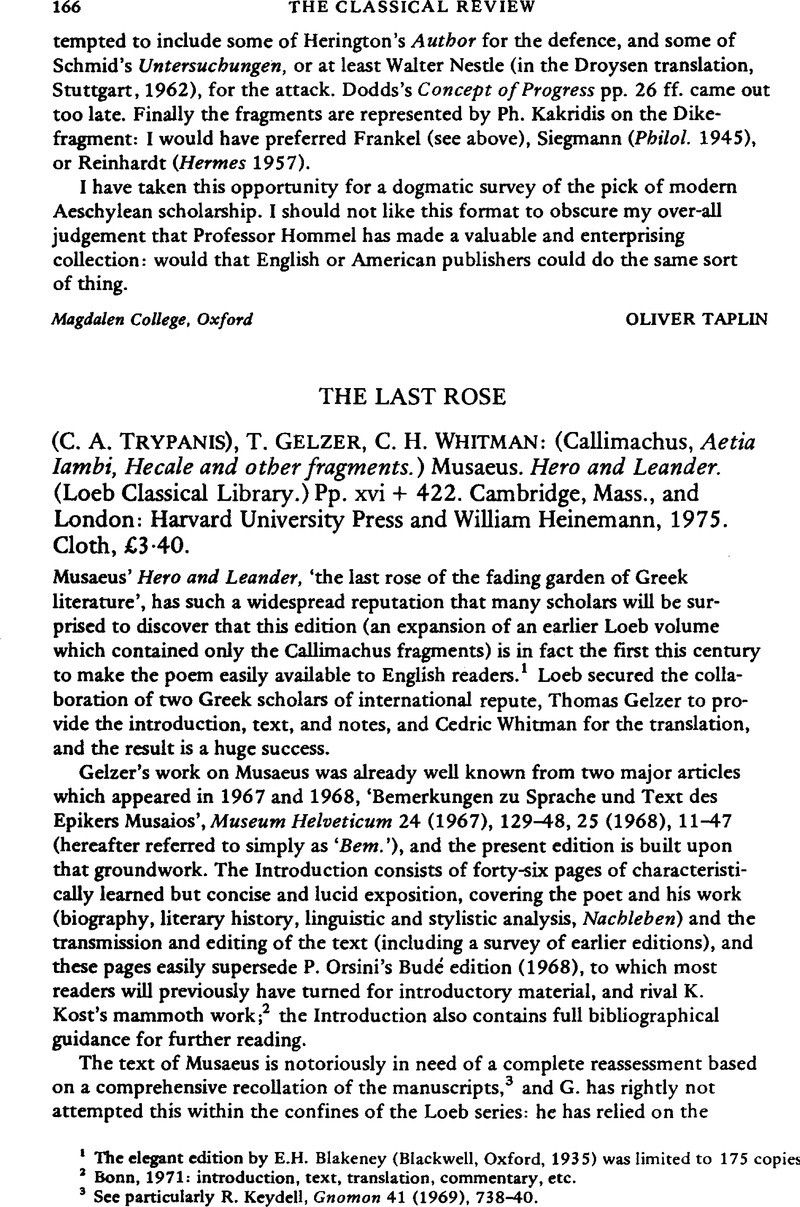No CrossRef data available.
Article contents
The Last Rose - (C. A. Trypanis), T. Gelzer, C. H. Whitman: (Callimachus, Aetia Iambi, Hecale and other fragments.) Musaeus. Hero and Leander. (Loeb Classical Library.) Pp. xvi + 422. Cambridge, Mass., and London: Harvard University Press and William Heinemann, 1975. Cloth, £3·40.
Published online by Cambridge University Press: 27 February 2009
Abstract

- Type
- Reviews
- Information
- Copyright
- Copyright © The Classical Association 1977
References
1 The elegant edition by E.H. Blakeney (Blackwell, Oxford, 1935) was limited to 175 copies
2 Bonn, 1971: introduction, text, translation, commentary, etc.
3 See particularly Keydell, R., Gnomon 41 (1969), 738–740Google Scholar.
4 There is one passage where I find G.'s normally skilful deployment of secondary material less convincing. At 327 G. argues for αὐτόματοϲ, inferring from Eustathius 604.43 ff. that there was a ‘grammatical theory’ of distinction between Homeric and post-Homeric practice as to the number of terminations of this adjective (Bern. 38); however Eustathius' remark is somewhat obscure and certainly very flimsy as evidence for this ‘theory’, and contemporary metrical practice required Dilthey's αὐτομάτη (with penultimate accent before the masculine caesura) as Keydell insists (Gnomon 41 (1969), 741–2, cf. Nonni.… Dionysiaca pref. p.38), even though at 54 a good case can be made for ἀγειρόμενοι




